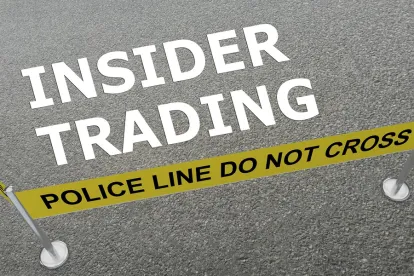On December 30, 2019 the Second Circuit issued its opinion in United States v. Blaszczak, finding that the government can criminally prosecute insider trading under 18 U.S.C. 1348 without proving personal benefit to the tipper, making it easier to prosecute trading on inside information.
Prior to the Blaszczak ruling, it was unclear whether judicial precedent in insider trading cases brought under the Securities Exchange Act of 1934, Section 10(b) and SEC Rule 10b-5 (referred to herein as Title 15), would apply to cases brought under the newer securities fraud law found in Title 18, which applies to registered securities. Under Title 15, prosecutors had to prove, among other things, that insiders received some form of “personal benefit” in exchange for their tips. In certain circumstances, demonstrating this element beyond a reasonable doubt has proven difficult for prosecutors.
Now, prosecutors can end-run Title 15’s personal benefit requirement by charging an alleged tipper insider under Title 18 as opposed to Title 15.
Christopher Worrall, a then-employee of the Centers for Medicare and Medicaid Services (“CMS”), allegedly provided nonpublic information about pending changes in CMS reimbursement rates to friend and former CMS Employee, David Blaszczak. In turn, Blaszczak, who worked as a consultant, passed the information to analysts at Deerfield Management Company, L.P, who then profitably traded on the information. Although Blaszczak received monetary compensation from Deerfield through a consulting agreement, Worrall did not receive any money. Worrall was alleged to have received sports tickets and free meals.
Prosecutors brought charges under Titles 15 and 18, arguing that under the latter it need not prove that Defendants received a personal benefit. The trial court agreed and instructed the jury in accord. The defendants were acquitted of the Title 15 charges but convicted on the Title 18 charges.
On appeal, the defendants argued, in part, that the district court erred by not applying the personal benefit requirement to Title 18 securities fraud. The panel in Blaszczak disagreed, opining that Section 1348, “was intended to provide prosecutors with a different — and broader — enforcement mechanism to address securities fraud than what had been previously provided in the Title 15 fraud provisions[.]” The panel added that it declined to “graft” the “personal-benefit test onto the elements of Title 18 securities fraud[.]” The Court also found that confidential government information like that passed by Worrall may constitute “property” for purposes of securities fraud.
The decision in Blaszczak may have certain unintended consequences. In cases involving registered securities, it seems unlikely that prosecutors will continue to bring charges under Title 15, when they can bring charges under Title 18 without having to prove the existence of a “personal benefit.” Moreover, it creates the paradoxical circumstance where an individual could be found criminally liable for insider trading under Title 18, but escape civil liability because the Securities and Exchange Commission still must demonstrate that the tipper received a “personal benefit” under Title 15.
Click here to view the Second Circuit’s complete opinion in United States v. Blaszczak.






 />i
/>i
